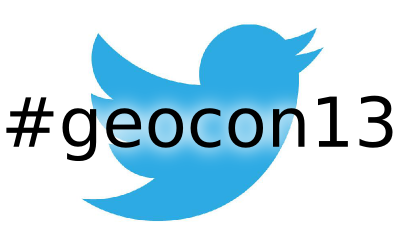Here comes GeoConvention 2013
 Next week Matt and I are heading to the petroleum capital of Canada for the 2013 GeoConvention. There will be 308 talks, 125 posters, over 4000 attendees, 100 exhibiting companies, and at least 2 guys blogging their highlights off.
Next week Matt and I are heading to the petroleum capital of Canada for the 2013 GeoConvention. There will be 308 talks, 125 posters, over 4000 attendees, 100 exhibiting companies, and at least 2 guys blogging their highlights off.
My picks for Monday
 Studying the technical abstracts ahead of time is the only way to make the most of your schedule. There are 9 sessions going on at any given time, a deep sense of FOMO has already set in. These are the talks I have decided on for Monday:
Studying the technical abstracts ahead of time is the only way to make the most of your schedule. There are 9 sessions going on at any given time, a deep sense of FOMO has already set in. These are the talks I have decided on for Monday:
Seismics for unconventionals
I watched Carl Reine from Nexen give a talk two years ago where he deduced a power-law relationship characterizing natural fracture networks in the Horn River shale. He will show how integrating such fracture intensity patterns with inversion models yields a powerful predictor of frackability, and uses microseismic to confirm it.
On a related note, and also from the Horn River Basin, Andreas Wuestefeld will show how microseismic can be used to identify fluid drainage patterns from microseismic data. Production simulation from an actual microseismic experiment. Numerical modeling, and physical experiment inextricably linked. I already love it.
Forward models and experimental tests
One is a design case study for optimizing interpolation, the other is a 3D seismic geometry experiment, the third is a benchtop physical fracture model made out of Plexiglass and resin.
Broadband seismic
Gets to the point of what hinders seismic resolution, and it does something about it through thoughtful design. This is just really nice looking data, two talks, same author: a step change, and impact of broadband.
Best title award
Goes to Forensic chemostratigraphy. Gimmicky name or revolutionary concept? You can't always judge a talk by the title, or the quality of the abstract. But it's hard not to. What talks are on your must-see list this year?
A really good conversation
Matt and I are hosting an unsession on the morning of Tuesday 7 May. It will be structured, interactive, and personal. The result: a ranked list of the most pressing problems facing the upstream geoscientists, especially in those hard to reach places between the disciplines. This is not a session where you sit and listen. Everyone will participate. We will explore questions that matter, connect diverse perspectives, and, above all, capture our collective knowledge. It might be scary, it might be uncomfortable, it might not be for you. But if you think it is, bring your experience and individuality, and we will do that thing called integration. We can only host 60 people, so if you don't want to be turned away, arrive early to claim a spot. We start at 8 a.m. in Telus 101/102 on the main floor of the north building.